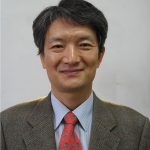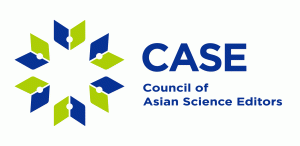Council of Asian Science Editors’ role to help Asian editors promote their journals to international standards

Sun HuhProfessor of Parasitology, Hallym University, Korea |
Paralleling the rapid economic development in Asian countries, there has been an increased rate of article production in these areas. When looking at the number of research articles published in SCIE journals in 2016, China, Japan, India, and Korea are included in the top 10 ranking countries (Fig. 1). Although there are high quality journals from Asia, many journals from Asian countries find it challenging to maintain international publishing standards. Out of 213 Web of Science journals with a 2016 impact factor greater than 10, two journals are from Asian countries. Usually scholarly journals from Asian countries are published by scholarly societies or non-profit research organizations where the editor is usually working voluntary without any compensation. Therefore, society journal editors can be frequently changed by publishers and society presidents.
In Korea, a group of scientific, technological, and medical editors met to launch the Korean Council of Science Editors (KCSE) in 2011. Since then, KCSE has held workshops or seminars with attendance numbering about 1,000 per year. The number of participating journals is up to 334 as of June 2017. In 2014, Korean editors led the organization of the Council of Asian Science Editors (CASE) to communicate with and train scientific editors in Asia. The 4th Asian Science Editors’ Conference and Workshop was held at Nong Lam University in Hochimin City, Vietnam on July 6-7, 2017. CASE would like to help local editors meet together and organize the local science editor’s association so that they can study editing and publishing more conveniently. One fruitful result is the organization of the Vietnamese Council of Science Editors in 2016. Major topics dealt with in the CASE annual conference and workshop are digital standards, information technology such as XML, peer review, and publication ethics. Recently one of the most influential organizations to scholarly journals is CrossRef, which has provided services such as digital object identifier (DOI), CrossMark, FundRef, text and data mining (TDM), and CrossCheck. Those services have become mandatory tools for editors. Another important technology is the journal article tag suite (JATS) XML for full text publishing on the web. It has been an ISO standard for scholarly journal web publishing since 2012 [1]. Asian editors should keep up with these international trends. To publish a competitive scholarly journal, it is essential to have not only high quality articles but also accessibility by adopting information technology [2]. Improving article quality requires some time since it depends on the society members or submitters’ scientific competency; however, adoption of information technology is easy to be realized owing to a high information technology in Asian countries. CASE has emphasized this in previous conferences. This year’s conference in Vietnam covered topics such as journal format, CrossRef services, digital standards, manuscript editing, open access, publication ethics, and peer review. Although those subjects are somewhat commonplace, they are still essential parts of journal editing and publishing.
There were science editors’ groups in three continents: Council of Science Editors in North America; European Association of Science Editors in Europe; and Council of Asian Science Editors in Asia. Another organization named Asian Council of Science Editors based in Mid-east Asia also has held meetings, workshops, or conferences since 2014. I am not sure how much CASE can help Asian editors continuously; however, the organization of science editors in each country will be a milestone for the promotion of the local journals.
References
- 1. International Organization for Standardization. ISO Standards Tag Set (ISOSTS) version 1.0: a customization of NISO JATS version 0.4 [Internet]. Geneva: International Organization for Standardization 2012 [cited 2017 Jun 16]. Available from: http://www.iso.org/schema/isosts/v1.0/doc/index.html
- 2. Chi J. Scientific publishing in the Asian century: an international perspective. Sci Ed. 2016;3(2):112-115. https://doi.org/10.6087/kcse.76
